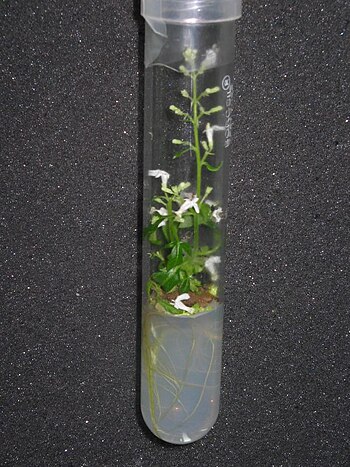 |
| I was working on tissue culture of Vitex negundo. It was a big surprise when it started to bloom inside the test tube. (Photo credit: Wikipedia) |
---------------------------------
SAN DIEGO - More than 30 years after the world greeted its first "test-tube" baby with a mixture of awe and concern, researchers say they are finding only a few medical differences between these children and kids conceived in the traditional way.
More than 3 million children have been born worldwide as a result of what is called assisted reproductive technology, and injecting sperm into the egg outside the human body now accounts for about 4 per cent of live births, researchers reported on Sunday at the annual meeting of the American Association for the Advancement of Science.
The majority of assisted reproduction children are healthy and normal, according to researchers who have studied them.
Some of these children do face an increased risk of birth defects, such as neural tube defects, and of low birth weight, which is associated with obesity, hypertension and Type 2 diabetes later in life, the researchers said.
Ms Carmen Sapienza, a geneticist at Temple University School of Medicine in Philadelphia, noted that few of these test tube children are older than 30, so it's not known if they will be obese or have hypertension or other health problems at age 50 or older. AP
From TODAY, Tuesday, 23-Feb-2010
----------










No comments:
Post a Comment